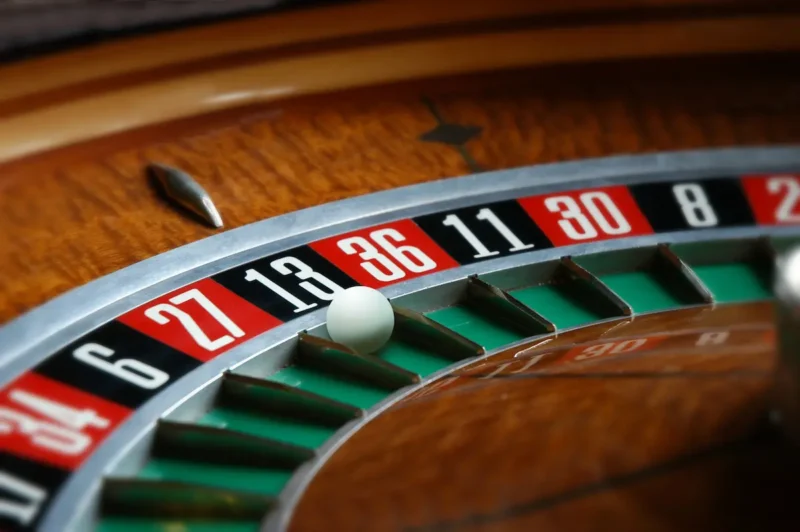Gambling instincts are those spontaneous, often inexplicable urges we get when making decisions, especially in high-stakes situations like gambling. These instincts can seem like a mysterious inner voice guiding us, but relying solely on them can be risky.
This post aims to demystify the process of making informed decisions based on gut feelings, blending intuition with logic. We’ll explore what gut feelings are, how to distinguish reliable instincts from impulsive ones, and strategies for enhancing decision-making skills. By integrating understanding, reflection, and mindfulness, we can refine our gambling instincts into a powerful tool for informed decision-making.
Understanding Gut Feelings

Gut feelings, or intuitions, are our subconscious minds communicating with us, often manifesting as physical sensations or emotional responses. These instincts are not random; they’re the result of our brains processing information below our conscious awareness.
Intuition plays a crucial role in decision-making, offering a shortcut to conclusions without deliberate analytical thought. The connection between emotions and gut instincts is profound, as emotions can significantly influence the decisions we make, guiding us towards choices that might not be immediately logical but feel right based on past experiences and learned patterns.
Recognizing Reliable Gut Feelings
Differentiating between reliable gut feelings and mere impulses is essential. Reliable gut feelings often have a sense of persistence and clarity, unlike the fleeting nature of whimsical urges. Signs of a trustworthy gut instinct include a strong emotional pull towards a decision that aligns with your values and past experiences.
In gambling, for instance, a seasoned player might feel a strong intuition about a play that seems unconventional yet is deeply informed by years of experience. Recognizing these feelings, and understanding when they’re more than just a hunch, can significantly benefit decision-making when playing at CasinoMira and similar gambling establishments. .
Analyzing Past Experiences

Our past experiences are invaluable in shaping our instincts. Reflecting on past decisions and their outcomes enables us to recognize patterns in our successes and failures. This reflection is not about dwelling on the past but learning from it to make better decisions in the future.
Understanding the context in which previous gut feelings led to positive outcomes can refine our intuition, making it a more reliable guide. Learning from past mistakes also helps in improving our decision-making process, by integrating those lessons into our subconscious understanding of similar situations.
Avoiding Impulsive Decisions
Impulsive decisions, made in the heat of the moment without sufficient reflection, can often lead to regret. It’s crucial to pause and reflect before acting on gut feelings, especially in the context of gambling, where stakes can be high.
Strategies for avoiding impulsivity include taking a step back to analyze the situation logically, considering potential consequences, and allowing time for emotions to settle. Balancing intuition with logic and reason is key, ensuring that decisions are not solely based on fleeting emotions but are informed by a comprehensive understanding of the situation.
Seeking Additional Information

While gut feelings are valuable, supplementing them with relevant information can significantly enhance decision-making. In the realm of gambling, this might mean researching game strategies, understanding odds, or learning from the experiences of seasoned gamblers.
Gathering this information allows for a more informed intuition, where gut feelings are not just blind guesses but informed predictions based on a blend of instinct and knowledge. Reliable resources for obtaining information include reputable books, online forums, and expert advice.
Consulting with Others
Seeking advice from trusted friends, family, or experts can provide new insights and perspectives on a decision. Discussing your instincts and thoughts with others can reveal aspects you might have overlooked, offering a more rounded view of the situation.
This process is particularly beneficial in gambling, where different experiences and strategies can shed light on the best course of action. Emphasizing the importance of considering multiple perspectives ensures that decisions are not made in isolation but are enriched by the wisdom and experiences of others.
Managing Risk

Risk management is an integral part of decision-making, especially when acting on gut feelings. Assessing and mitigating risks involves understanding the potential outcomes of a decision and preparing for them accordingly. In gambling, this might mean setting limits on bets or walking away when intuition suggests a high chance of loss.
Balancing risk and reward is crucial, ensuring that the potential benefits justify the risks involved. Effective risk management strategies can help harness gut feelings positively, guiding decisions that lead to favorable outcomes while minimizing potential downsides.
Trusting Yourself
Developing trust in your instincts is vital for making informed decisions based on gut feelings. This trust comes from acknowledging your intuition’s value, being open to feedback, and engaging in continuous self-reflection.
Building self-confidence in your decision-making abilities allows you to rely on your instincts while remaining receptive to new information and perspectives. Strategies for building self-trust include reflecting on past successes guided by intuition and recognizing the growth in your decision-making skills over time.
Practicing Mindfulness

Mindfulness enhances awareness of our thoughts and feelings, including gut instincts. By practicing mindfulness, we can become more attuned to our intuition, distinguishing between genuine instincts and mere reactions to temporary emotions.
Techniques such as meditation, deep breathing, and being present in the moment can help reduce the influence of biases on decision-making, allowing for clearer, more informed intuition. Mindfulness fosters a deeper connection with our inner selves, empowering us to make decisions that align with our true intentions and values.
Learning from Mistakes
Embracing failure as an opportunity for growth is essential for refining our decision-making abilities. Analyzing past mistakes allows us to understand what went wrong and why, improving our intuition for future decisions.
Success stories often include numerous failures, serving as reminders that learning from mistakes is a stepping stone to success. This process encourages a growth mindset, where each failure is viewed as a chance to learn and improve, rather than a setback.
Conclusion
Making informed decisions based on gut feelings is a nuanced process that blends intuition with logic, information, and reflection. Recognizing reliable gut instincts, analyzing past experiences, and managing risks are all critical components of informed decision-making.
By practicing mindfulness, seeking additional information, and consulting with others, we can refine our instincts into a powerful guide for making decisions. Trusting ourselves and learning from our mistakes further enhances our ability to make decisions that are not only informed by our gut feelings but are also backed by thoughtful consideration and analysis.
As we continue to hone our intuition through practice and reflection, we empower ourselves to make decisions that are aligned with our values, goals, and the realities of our environment.
Related Posts:
- The Future of Betting: Forecasting Gambling Industry…
- How to Calculate Personal Injury Claim: Tips for…
- The Toughest Relationship Phase: Tips for Overcoming…
- Moving with a Baby Stress-Free: Essential Tips for a…
- How To Use Leaflets as a Marketing Tool? 10 Tips and…
- Best Norway Tours & Trips for Couples 2024: Tips for…















